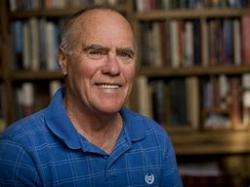Are an opponent and the injured player’s coach responsible for a player’s life-altering injury?
During a high school boy’s lacrosse game in May 2019, Lance Fenderson of Davidson Day School (NC) found himself between his team’s goal and a hard-charging opponent. According to The Charlotte Observer, Fenderson “held his ground,” but then lowered his head just before impact.
That impact broke Fenderson’s neck in three places, paralyzing him from the neck down.

Lance Fenderson (photo, Fenderson family & Charlotte Observer)
Ten months later, his parents are suing his coach, the athletic trainer of the opposing school, and the player who collided with their son. That player is charged with “willful and wanton conduct.” The parents allege that “instead of turning to avoid Lance, (the player) lowered his shoulder, accelerated…driving Lance’s’ (lowered) head into the base of his neck.”
One of the charges against Fenderson’s coach is that he failed to match their son with a similarly-sized opponent. Those are only a few of many charges that the Fenderson’s have filed in this case.
Several questions strike me about this narrative.
Didn’t the parents know that lacrosse is a contact sport? Hadn’t they seen a game and witnessed the contact that occurs between players? Reasonableness says ‘yes’ to both questions.
But charging an opponent with “willful and wanton conduct” isn’t reasonable. The parents assert that the opposing player and his teammates celebrated when their son fell to the ground. While that may be true, players celebrate hard hits all the time. That noted, have you ever seen players celebrating an opponent’s life-altering injury?
The Fenderson’s also believe that the coach did not substitute adequately. In their view, that caused their son “to be exhausted and more susceptible to injury.”

Courtesy: Private School Review
In reality, lacrosse is a fast game, and players routinely find themselves facing opponents of various sizes and shapes. Perhaps their son was tired, too, but no coach I know (or ever knew) keeps overly tired players on the field. Doing that costs the team because an exhausted player doesn’t play well.
On a personal note, having lived in a wheelchair for the past twenty years, I have a sense of what Lance Fenderson and his family are experiencing. However, the fact of the matter is that he is the one who “held his ground,” and he is the one who “lowered his head.” Those two acts make Lance Fenderson responsible for his unfortunate injury, not the opposing player or his coach.
What’s the takeaway here? Choices have consequences. Lance Fenderson’s parents made a choice when they allowed their son to act on his choice to play lacrosse. Lance played the game, and they most likely watched him play, thereby supporting him in his choice. In a game last May, Lance chose to hold his ground as an opponent ran toward him, and, then, he lowered his head.
Fenderson’s family choices led to Lance’s injury. Now they have to live with those choices.
















